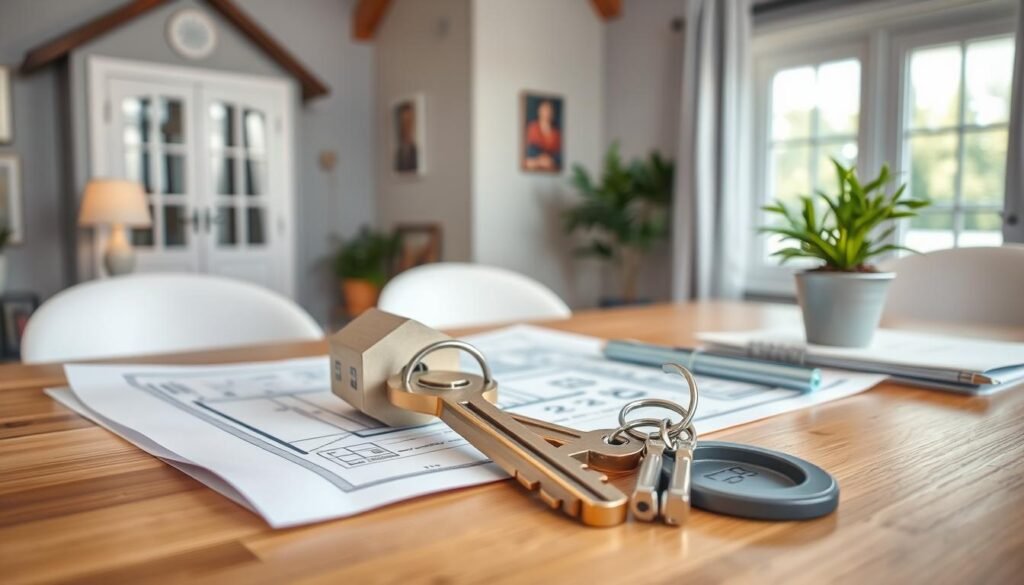This post may contain affiliate links, which means I may earn a commission if you purchase through these links at no extra cost to you
I wish I knew more about negotiating home prices when I purchased my first home.
Sometimes sellers ask for a bit more than the home’s worth to allow negotiation. To succeed, be patient and use smart home buying strategies. Knowing how to negotiate can ease worry and lead to a good deal. Depending on the market, buyers may have more chances to talk down prices. It’s crucial to be well-informed.
With interest rates on 30-year mortgages over 7 percent, knowing your market makes a difference. Whether it’s the closing timeline or who covers closing costs, many negotiation tactics exist.
Table of Contents
TogglePreparing to Navigate Home Price Negotiations
Home price negotiations can be overwhelming, especially if it’s your first time. With the right resources and strategies, you can simplify the process. This guide will help you prepare, making you confident and ready to negotiate.
Work with an Agent or REALTOR®
Working with a real estate agent is crucial. They have deep knowledge about the market and can guide you. Their expertise in making compelling offers will show sellers you’re serious.
Get Your Finances In Order
Getting your finances ready is key before negotiations. A mortgage preapproval strengthens your position, showing sellers you’re ready to buy. Preapproval means lenders have closely reviewed your finances, proving your buying power.
Know Your Market
Knowing if it’s a buyer’s or seller’s market is essential. In a buyer’s market, you can negotiate better deals. But in a seller’s market, homes may sell for more.
| Market Type | Characteristics | Negotiation Leverage |
|---|---|---|
| Buyer’s Market | High supply, low demand | Higher – More room to negotiate prices and terms |
| Seller’s Market | High demand, low supply | Lower – Less room to negotiate, higher prices |
With market analysis and current conditions, you can navigate negotiations better. This knowledge helps you tailor your strategy and sets you up for success.
Key Strategies for Negotiating a Home Purchase
Getting into real estate requires knowing how to bargain for your dream house. Let’s take a look at some key ways to do this.

Be Sure to Get An Inspection
A thorough home inspection is vital when negotiating. It can reveal problems that let you ask for a lower price or other concessions. Knowing the house’s true state lets you negotiate with confidence.
Always Communicate Through Your Agent
It’s important to talk through your agent during negotiations. This keeps your discussions clear and safeguards your interests. Your agent’s knowledge can greatly help you.
Ask For Closing Costs
Try to get the seller to help with closing costs. This can save you a lot of money.
Find Out Why The Seller Is Moving
Knowing why the seller is leaving can give you an advantage. If they need to move quickly, they might accept more favorable terms for you. This tip is really helpful in different market situations.
Using these tactics can smooth the process of buying a house.
| Market Condition | Negotiation Strategy |
|---|---|
| Buyer’s Market | Request significant discounts and closing cost assistance |
| Seller’s Market | Offer attractive terms and consider personalized touches |
| Neutral Market | Balance requests with reasonable offers |
How to Negotiate Home Price First-Time Buyers can Benefit From

Don’t Be Afraid to Walk Away
Staying within your budget is essential, and sometimes you might need to walk away. Setting firm negotiation limits is important to avoid spending more than you can afford.
Negotiating may lower the total amount you borrow, which shaves money off your monthly payment.
About 70% of buyers are waiting for mortgage rates to drop below 5.5% before buying. However, the current 30-year fixed-rate average is 7.22%. Staying disciplined is crucial. Remember, comparing rates can reveal you haven’t found the lowest one yet.
Walking away if the deal isn’t right shows you are serious. This might make the seller reconsider and agree to your terms.
| Scenario | Average Rate | Potential Savings |
|---|---|---|
| Two Rate Quotes | 7.22% | $600 annually |
| Four Rate Quotes | 7.22% | $1,200 annually |
Buying a home involves careful negotiation and finding a place you love. Having negotiation boundaries will prepare you to secure a great deal.
Understanding Market Trends and Seller Motivation
First-time buyers need to understand real estate market trends. By knowing if it’s a buyer’s or seller’s market, you can make smarter choices. In a buyer’s market, lots of homes are up for grabs, giving you more power. Sellers might offer better deals or lower prices to attract buyers.
In contrast, a seller’s market means homes are in high demand. Sellers can ask for higher prices and might not lower them much. Getting the hang of these real estate market trends can make you a better negotiator.
Knowing why a seller wants to sell is key. If a seller wants to close the deal fast, they might be open to negotiation. Ask them why they’re selling, if there’s a rush, or about home improvements they’ve made. This info can give you valuable clues. Working with skilled agents can boost your housing market analysis. It helps in making offers that meet the seller’s needs, increasing your chances for a good deal.
Using smart housing market analysis and planning can improve your real estate negotiation success. In markets where no side has a clear advantage, understanding these points helps. It leads to fair deals for both sides. These strategies are crucial for savvy home buying, possibly giving you an edge.
Negotiating Additional Home Buying Costs
When buying your first home, saving money on extra costs matters a lot. Focus on getting better mortgage rates and lower lender fees. Ask the seller to help with closing costs and home repair bills. It’s important to know the market and which home fixtures you can keep. This will save you money. Here are ways to make home buying more affordable:
Mortgage Rate and Lender Fees
Getting multiple mortgage rate quotes helps buyers find lower rates. So, don’t just go with the first lender. Try to negotiate for the best deal. Your financial situation, the economy, and the type of loan affect the rates. You can also talk down some lender fees, like for the loan application or home appraisal. Learn more about getting a good mortgage deal at Sofi Home Loans.
Home Repairs
Home inspections might show big repair needs. This is your chance to ask the seller to fix things before you close the deal. Or, get a discount at closing for these repairs. Making sure your offer accounts for these issues helps avoid surprise costs later.
Seller-Paid Closing Costs
Asking the seller to pay some closing costs can save you money. If the seller wants to sell fast, they might say yes. Knowing what the seller wants can help you get a better deal. In fact, over 45% of sellers gave buyers some concessions in 2023, according to Redfin.
Fixtures
That beautiful chandelier or custom bookshelf you love might not come with the house. But, you can try to have those fixtures included in your purchase. This adds value without costing you more.
Home Warranties
A home warranty can give you peace of mind by covering repairs and replacements for major appliances. This is great for first-time buyers who might not have extra money for surprise repairs.
Final Thoughts
To buy a home successfully, you need good preparation and smart negotiation skills. By following the advice shared, first-time buyers can feel ready to negotiate. Understand the deal isn’t just about the price, but also other financial and situational aspects.
Know the market trends and what motivates the seller. Real estate deals can take a while, often more than a month, from offer to closing. Patience is very important. A quicker closing might benefit you, as could negotiating on when to take possession. Using inspection, appraisal, and financing conditions smartly can change the negotiation game.
Remember, closing costs are usually 2% to 5% of the house’s buying price. Negotiating for the seller to pay some of these costs can save you money, especially if they are ready to sell quickly.



